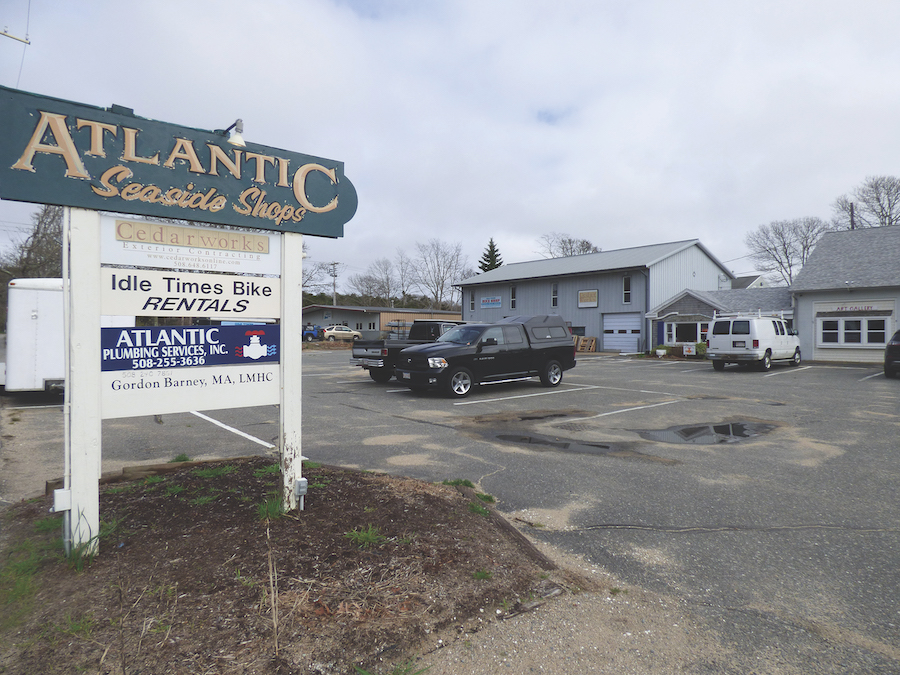EASTHAM — A local resident’s attempt to overturn the special permits awarded to two marijuana businesses was dismissed by Barnstable Superior Court Judge Thomas Perrino on Dec. 23.
Eastham’s Steve Wlodkowski filed a civil complaint on July 18, 2019, challenging the planning board’s approval of two recreational marijuana stores, one medical marijuana dispensary, and one cultivation facility. The permits had been granted on June 19.
Judge Perrino ruled that Wlodkowski did not have standing in the case because he is not an abutter to the proposed marijuana facilities and, thus, not an aggrieved party.
Harlen Howard and Jonah Turner of Truro, operating as Salty Farmers, plan to operate a retail cannabis store at 182 Brackett Road and a cultivation facility at 120 Holmes Road. A second company, Emerald Grove, owned by Timothy and Alex Jamoulis of Harwich, received permits to operate a combined retail and medical marijuana outlet at 3 Main St., unit 1, in the development known as Main Street Mercantile.
All three locations either directly abut or are near the affordable rental development called Village at Nauset Green, off Brackett Road, now under construction.

In his complaint, Wlodkowski argued that all of the proposed businesses would operate within 500 feet of a playground that is being built at the Nauset Green development. Eastham’s bylaws prohibit marijuana businesses within 500 feet of a K-12 school, “childcare center; public park; playground; or children’s camp.”
“The main reason [I’m doing this] is to advocate for the people who can’t advocate for themselves,” Wlodkowski said in July. “As a community it’s up to us to follow our bylaws for our neighbors.”
Eastham Town Planner Paul Lagg argued that the playground being planned for Nauset Green was not a public park but was for the exclusive use of the development’s residents.
Fleisher Enterprises LLC owns the building at 182 Brackett Road, Farrell Electric owns the land at 120 Holmes Road, and Katrina Boucher owns unit 1 at 3 Main St. All were listed as defendants in the complaint, along with the two marijuana businesses and all members of the town’s planning board.
Wlodkowski acted as his own lawyer in filing the complaint. He did not respond to a request for comment on the court’s decision this week.
Both Salty Farmers and Emerald Grove have host agreements with the town and will pay a community impact fee of 3 percent of gross sales for the first three years of operation to help address any public health, safety, or other problems created by the businesses.
Both businesses are in the process of obtaining licenses from the state Cannabis Control Commission (CCC).
The CCC has its own regulations: “A marijuana establishment shall comply with all local requirements regarding siting, provided however that if no local requirements exist, then marijuana establishment shall not be sited within a radius of 500 feet of a public or private school, daycare center, or any facility in which children commonly congregate. The 500-foot distance under this section shall be measured in a straight line from the nearest point of the facility in question to the nearest point of the proposed marijuana establishment.”
But the CCC does not further define the phrase “any facility in which children commonly congregate.”
Wlodkowski’s complaint also cited the proximity of the Cape Cod Rail Trail. Olivia K. Dorrance, a spokesman at the state Dept. of Conservation and Recreation, said, “Contained within the Massachusetts state park system are parks, beaches, reservations, forests, and other properties that the [DCR] designates as parklands, which includes rail trails. However, the applicability of local zoning ordinances is a matter for a municipality to determine, not the DCR.”
Wlodkowski also approached the state Bureau of Housing Development and Construction, seeking direction on the siting of cannabis businesses near playgrounds.
In an email reply to Wlodkowski, the bureau’s Ben Stone said his department could not influence the decision.
“While we understand the concern, unfortunately BHDC is not able to directly influence or change local zoning decisions,” Stone wrote. “We have also contacted the Cannabis Control Commission, who had the same response. We suggest continuing to work with the Eastham Planning Board and local government.”



